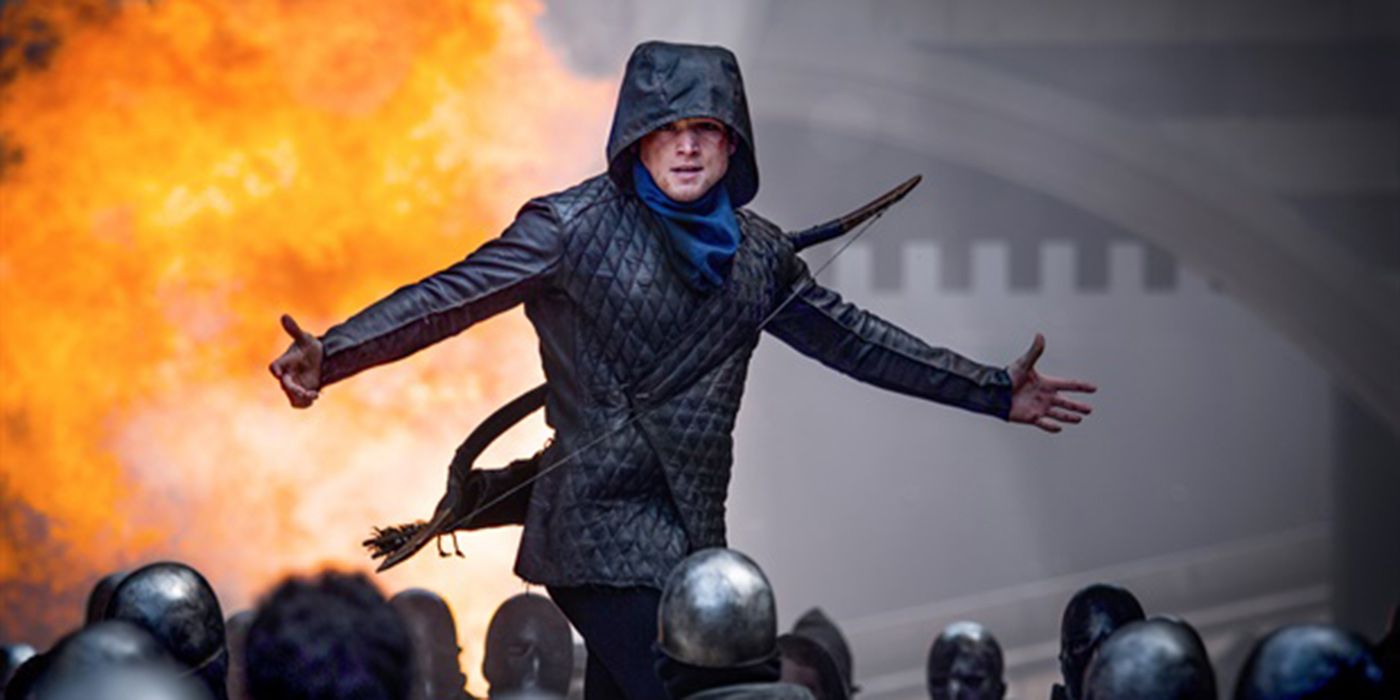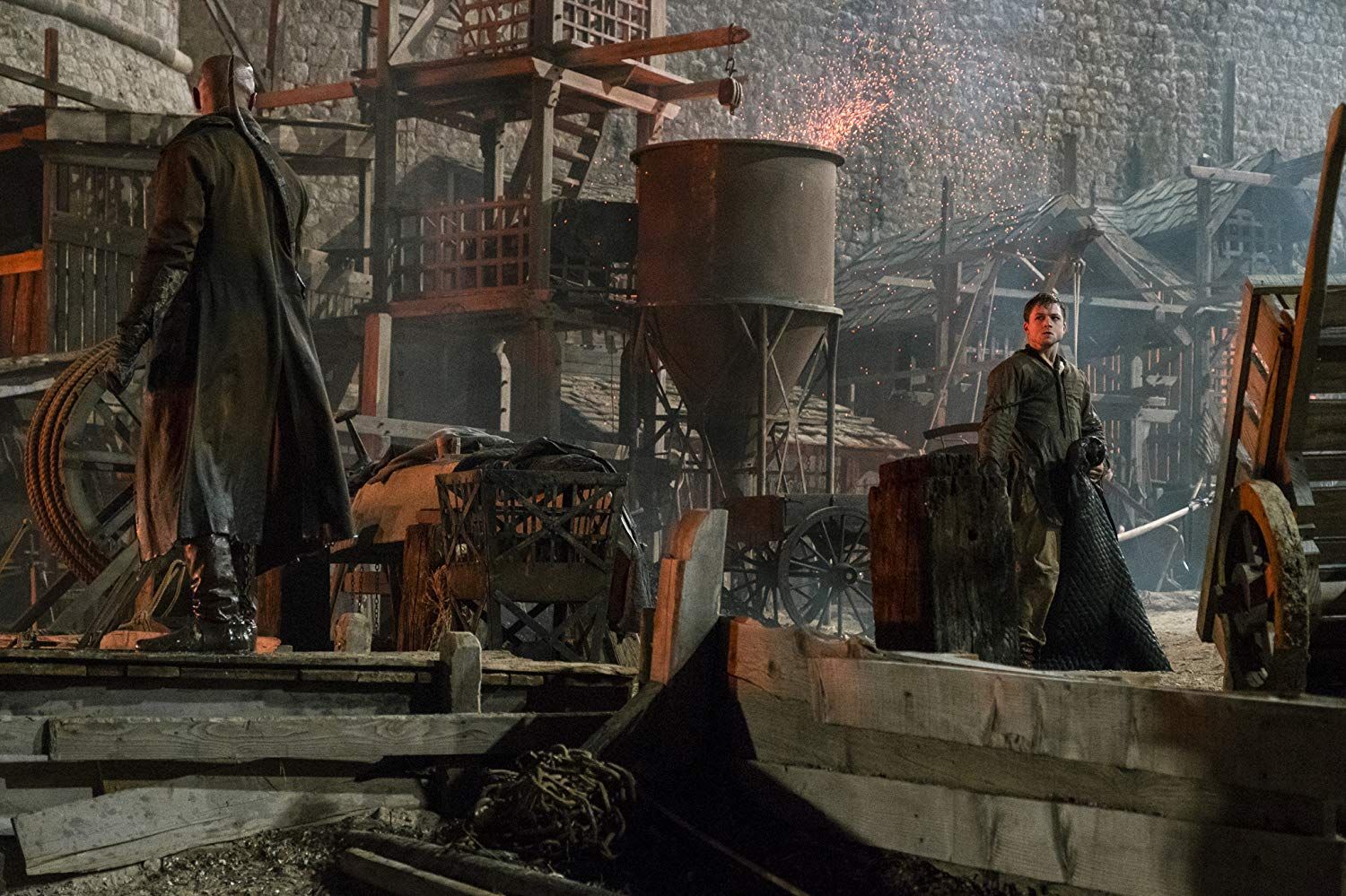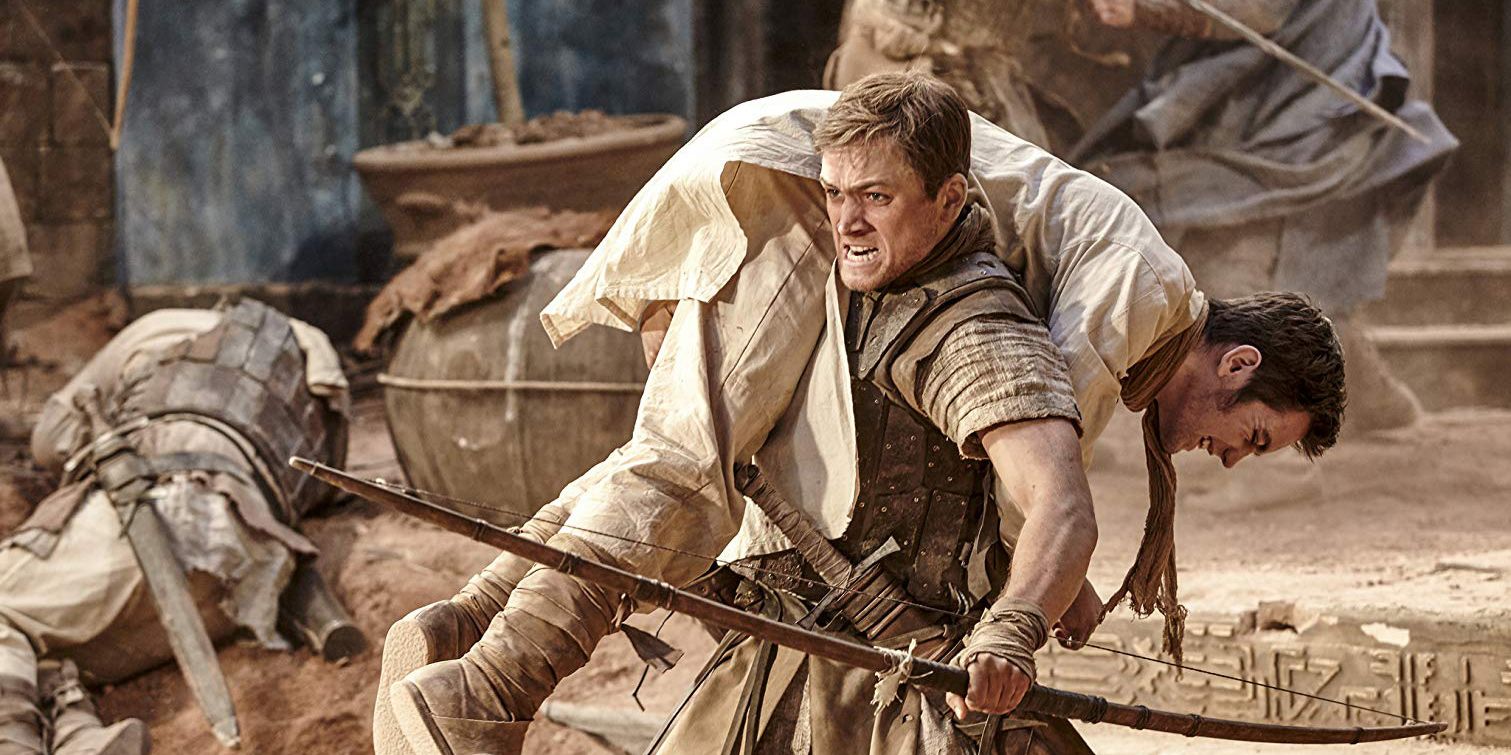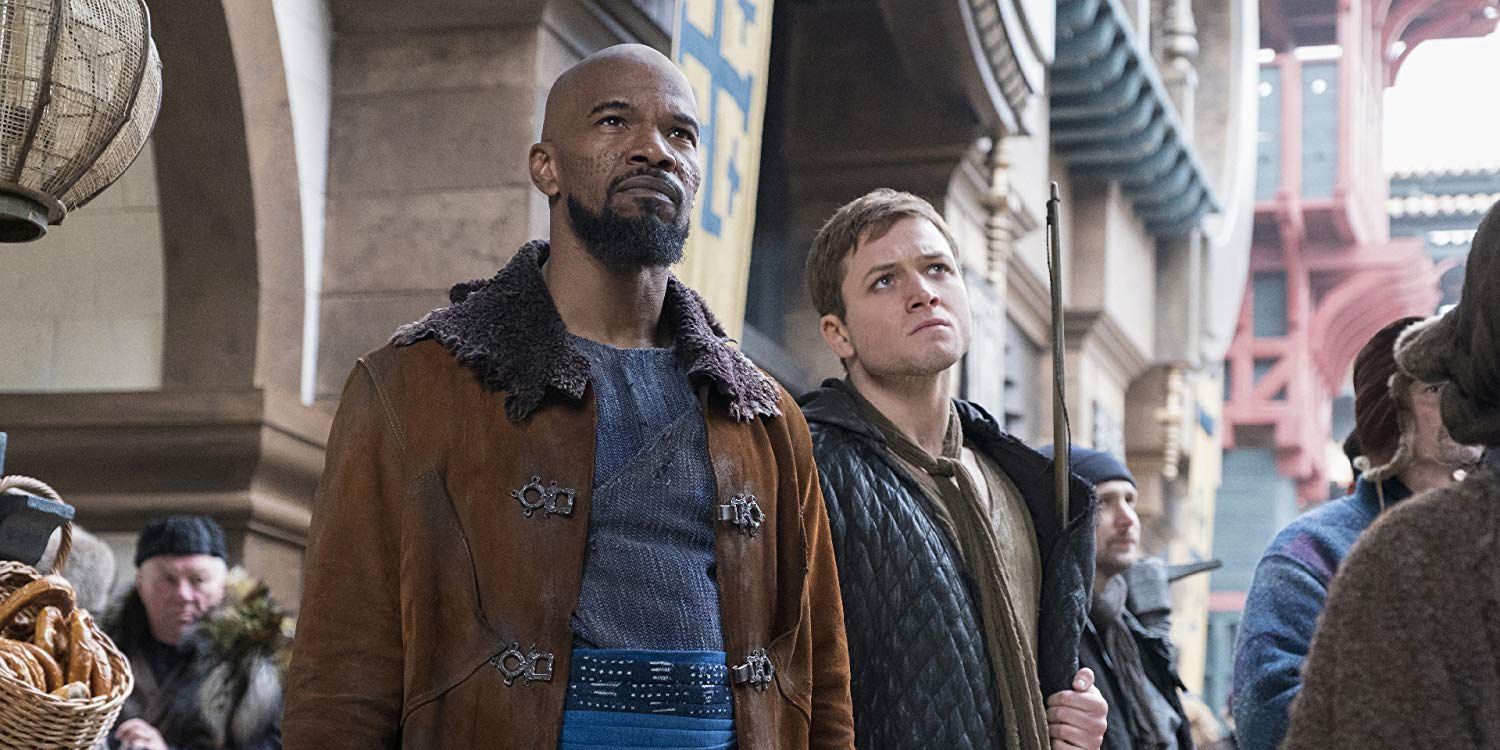Lionsgate's Robin Hood has always more than up front about its intention to take a loose historical interpretation of one of England’s most enduring legends. The trailers showcased numerous anachronisms, from arrows that did the damage of assault weapons, to sophisticated ironworks to pristine white leather jackets, to even medieval-ized versions of roulette and craps. From a stylistic standpoint, these choices wouldn’t make or break a movie, after all, medieval England wasn’t the flashiest of places, and any storyteller could be forgiven for wanting to elevate the design into something more fantastical. But there’s Baz Lurhman, there’s A Knight’s Tale, there’s every single modernized adaptation of Shakespeare… and then there’s Robin Hood.
It would’ve been one thing to have the cast running around in modern garb, but still adhering to some semblance of historical accuracy as they acted out a story deeply rooted in the politics of its time. But so much of the film is unfaithful to the time period its chosen to occupy that the impact of its stylistic choices is undermined. Ultimately those choices make it hard to take the film any kind of seriously (not that Robin Hood is The Hurt Locker or anything, but still).
RELATED REVIEW: Robin Hood Fails On Virtually Every Level
Robin and Marian engage in a thoroughly modern love story that involves them doing laughably 21th century things like living together before marriage (no, she is not a prostitute). What was the point of giving Robin and Marian such a ludicrous backstory? Their romance would’ve appealed to today’s audiences without him literally giving her a key to his manor (seriously, he gives her an actual key). The peasants in Nottingham would’ve been just as pitiable had they been portrayed as serfs as opposed to District 13 miners. And Egerton’s Loxley would’ve gone to the Crusades without having been drafted.
It also doesn’t help that some of the more major historical inaccuracies feel like they were inserted to help audiences comprehend the already too simplistic political allegory. For example, the Sheriff of Nottingham uses fear-mongering and racism to incite his subjects to give up everything they have in taxes to support the Crusades. He plans to use the astronomical sum of money he’s fleeced from the town to bribe his way into more power, shoehorning a fractured Trump/corporate greed analogy into the story, which moves the film farther afield of anything resembling the Robin Hood story it tries to cloak itself in.
RELATED: How Robin Hood Sets Up A Merry Men-Fueled Sequel
Either that or there were way too many people working on this film that just said “Screw it, we wanna see what it looks like when a horse rides through a mineshaft.” TL;DR: The anachronisms in Robin Hood are choices, not oversights, but they only serve to weaken an already embattled film. That said, they’re really funny when you list them out, so enjoy!
Conscription – There was no conscription in England during the Crusades. And if there were conscription, men would not have been notified with a “draft notice.”
Hospital Boats – When Loxley’s injured on the Crusades, his commander, Guy of Guisborne, sends him back to England on a “hospital boat.” No, those were not things and no, people did not get sent home from the Crusades because they received an injury, however major.
NEXT PAGE: Robin Hood's Totally Fake Weapons, Non-Existent Clothing and a Fictional Social Structure
Stone-Piercing Arrows – In an effort to make archery as exciting as Guns, Egerton's Robin Hood shoots arrows so powerful they explode stone on impact. To be fair, the Moors he fights in the unspecified area of "Arabia" they crusade to actually shoot those, and Jamie Foxx follows Loxley home to England to teach him how. But arrows forceful enough to explode masonry when fired by humans did not exist. If they did, they would've it would’ve taken a superhero to fire them as quickly as Robin does.
Peasants Who Could Read – one of the more interesting tweaks writers Ben Chandler and David James Kelly made to the Robin Hood legend was making Will Scarlet a political rival. Jamie Dornan plays Scarlet, a peasant who’s working with (and dating?) Marian in an effort to effect change in Nottingham, but the education he employs while doing so isn’t one he would’ve ever been able to receive, historically. The only person who’s accurately educated is the Sheriff, who was raised in the church (but somehow did not become a member of the clergy).
RELATED: Poison Arrows: Robin Hood's Most Brutal Reviews
A City-Dwelling Working Class – 12th century England was a feudal society. While there were large towns and people that dwelt within them, the bulk of the lower classes were serfs who farmed the lands of their overlord for life. There were no mining shanty towns because there weren’t mines and there wasn’t urban infrastructure available to support that kind of population until the Industrial Revolution. Or whatever.
Ceramic Tiled Roofs – The aerial shots of Nottingham reveal the rust-colored imbrex and tegula tiled roofs that you’d expect to see in Spain, Italy, Pasadena or Dubrovnik, where the movie was filmed. These actually date back to Roman times, but thatched roofing was widely-used in England (especially among the lower-classes) until the late 1800s.
Honorable Mentions -- Molotov cocktails, reading glasses, cement, long-sleeved t-shirts, corrugated tin, hoodies, the color puce, beanies, hairspray, leather dusters and railroad tracks.
Again, it’s not that a fresh design or more modernized interpretation couldn’t have benefitted a Robin Hood movie. Hollywood has spent the nearly three decades since Robin Hood: Prince of Thieves (the last truly successful adaptation of this legend) trying and failing to capitalize on that same story. Anytime a different perspective’s been pitched (people have been trying to give the Sheriff of Nottingham a redemption arc for years), it’s always devolved into attempting to retell the same basic Robin of Loxley story. Here’s hoping the next person who tries to adapt this folk tale will do something more ambitious with it than throwing a bunch of bad history it.
In theaters now, Robin Hood stars Taron Egerton as Robin, Jamie Foxx as Little John, Eve Hewson as Maid Marian, Ben Mendelsohn as the Sheriff of Nottingham, Tim Minchin as Friar Tuck, Jamie Dornan as Will Scarlet, Paul Anderson as Guy of Gisborne, Josh Herdman as Righteous, and Bjorn Bengtsson as Tydon.




